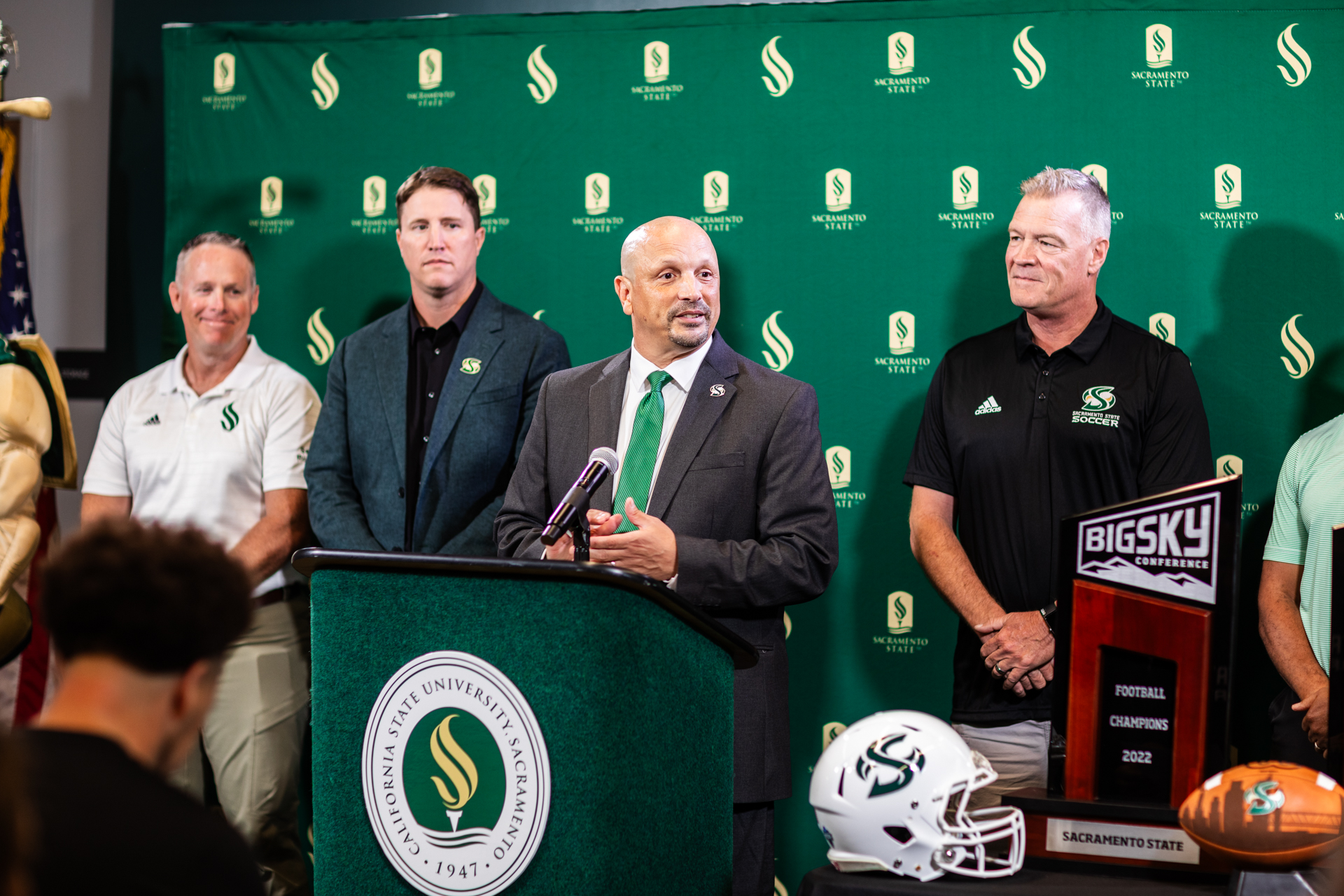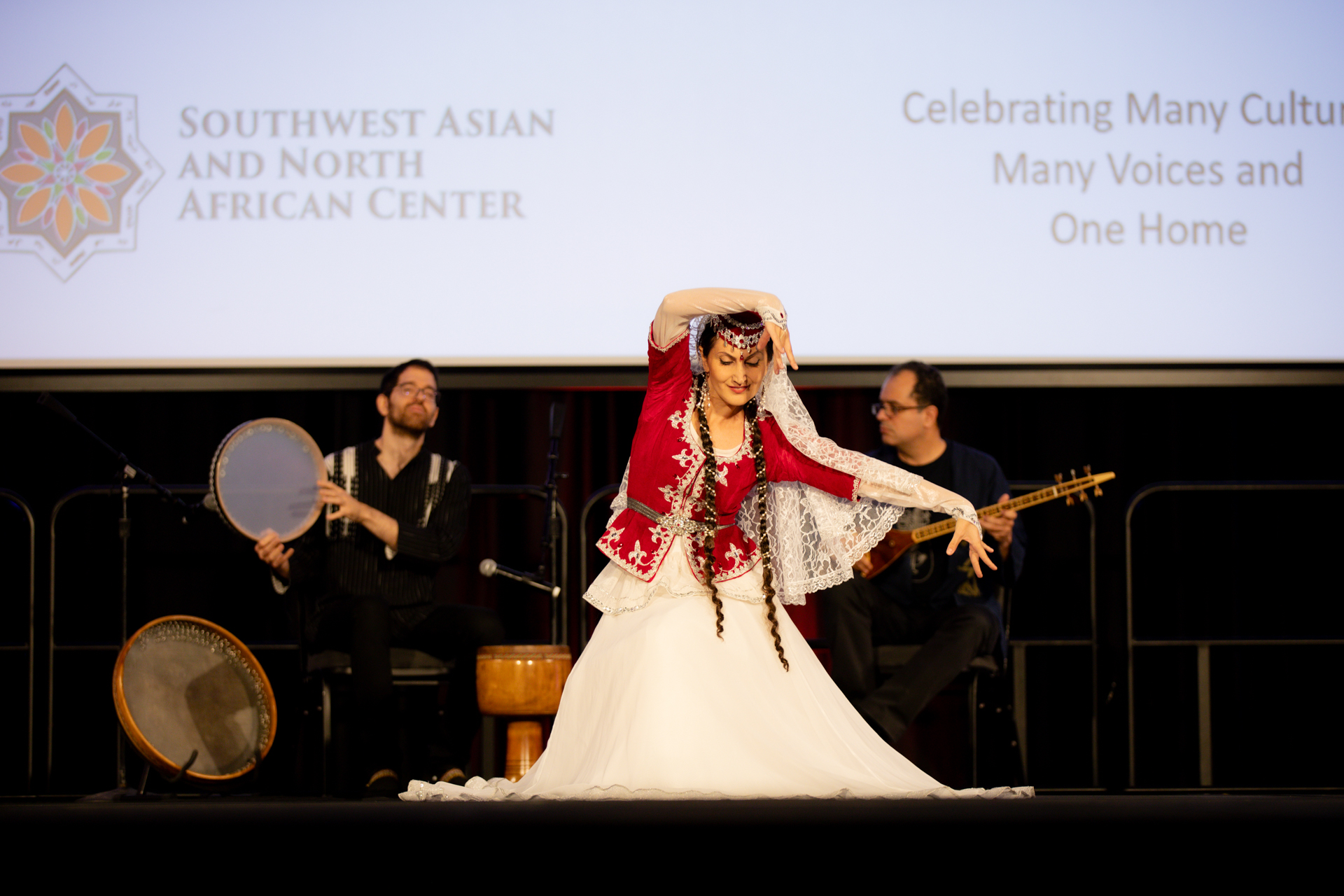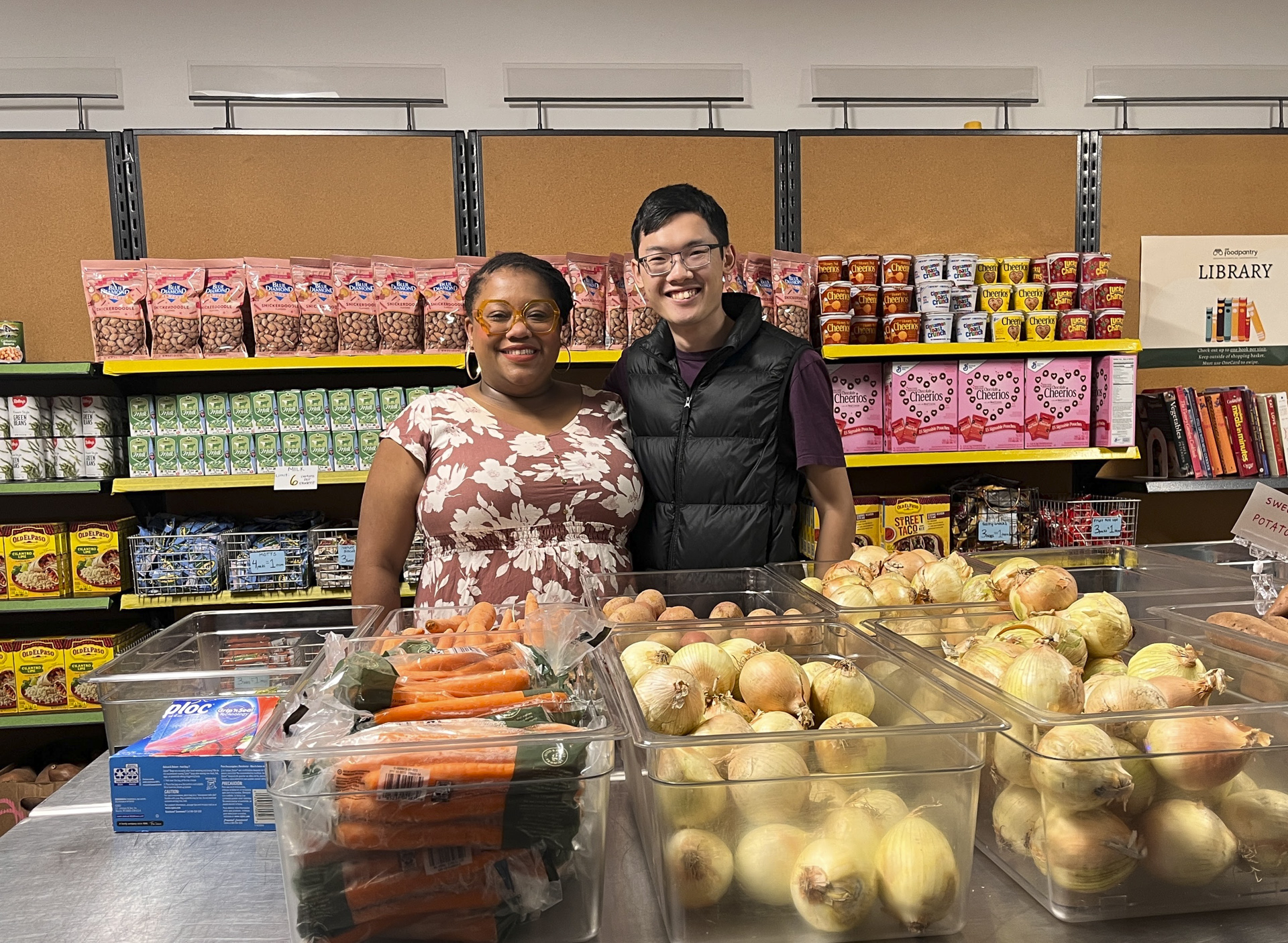Story Content
American Sign Language and Deaf Studies celebrates opening of new ASL Lab
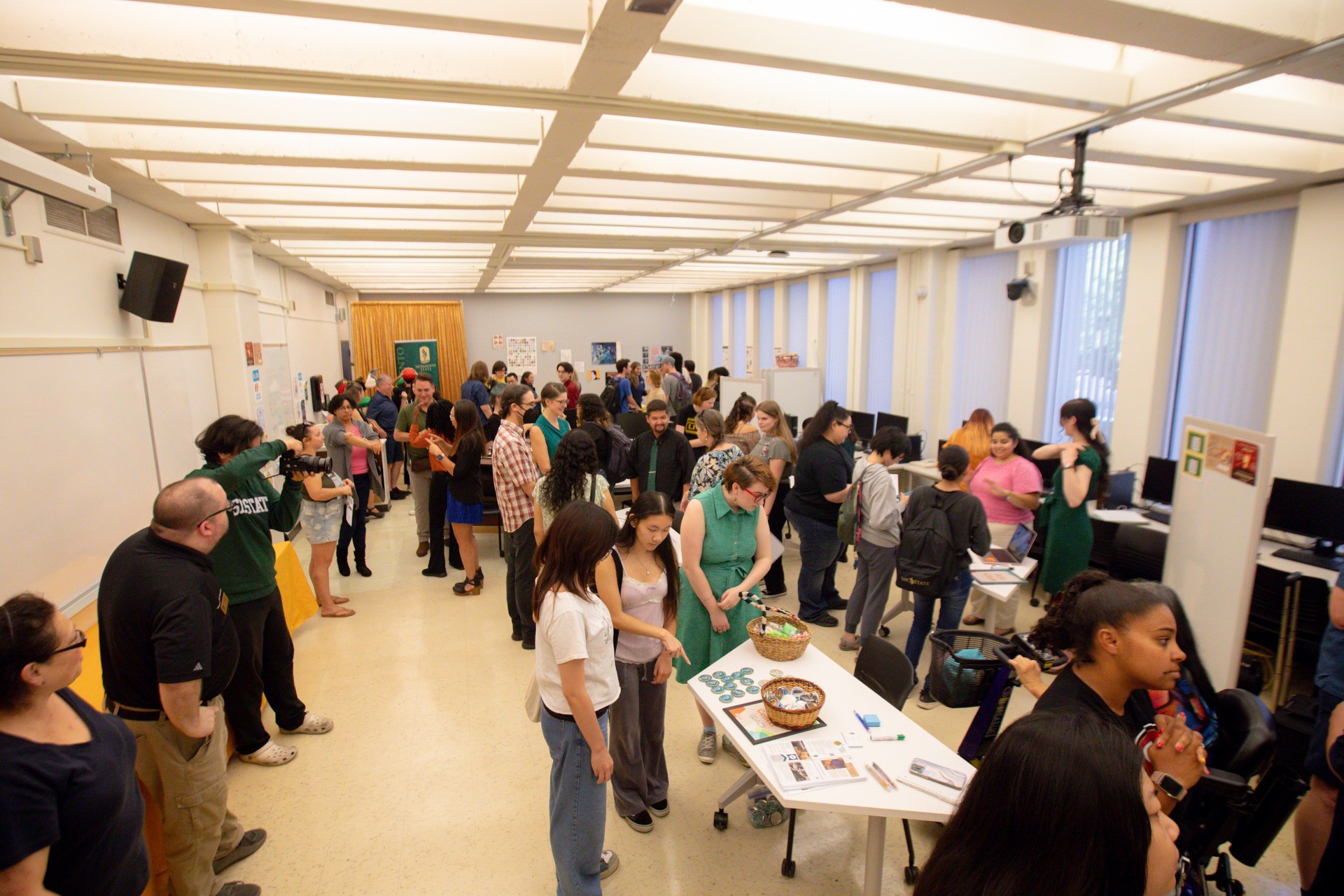
October 01, 2024
Students in Sacramento State’s Deaf Studies program now have a dedicated space to practice American Sign Language and collaborate with classmates.
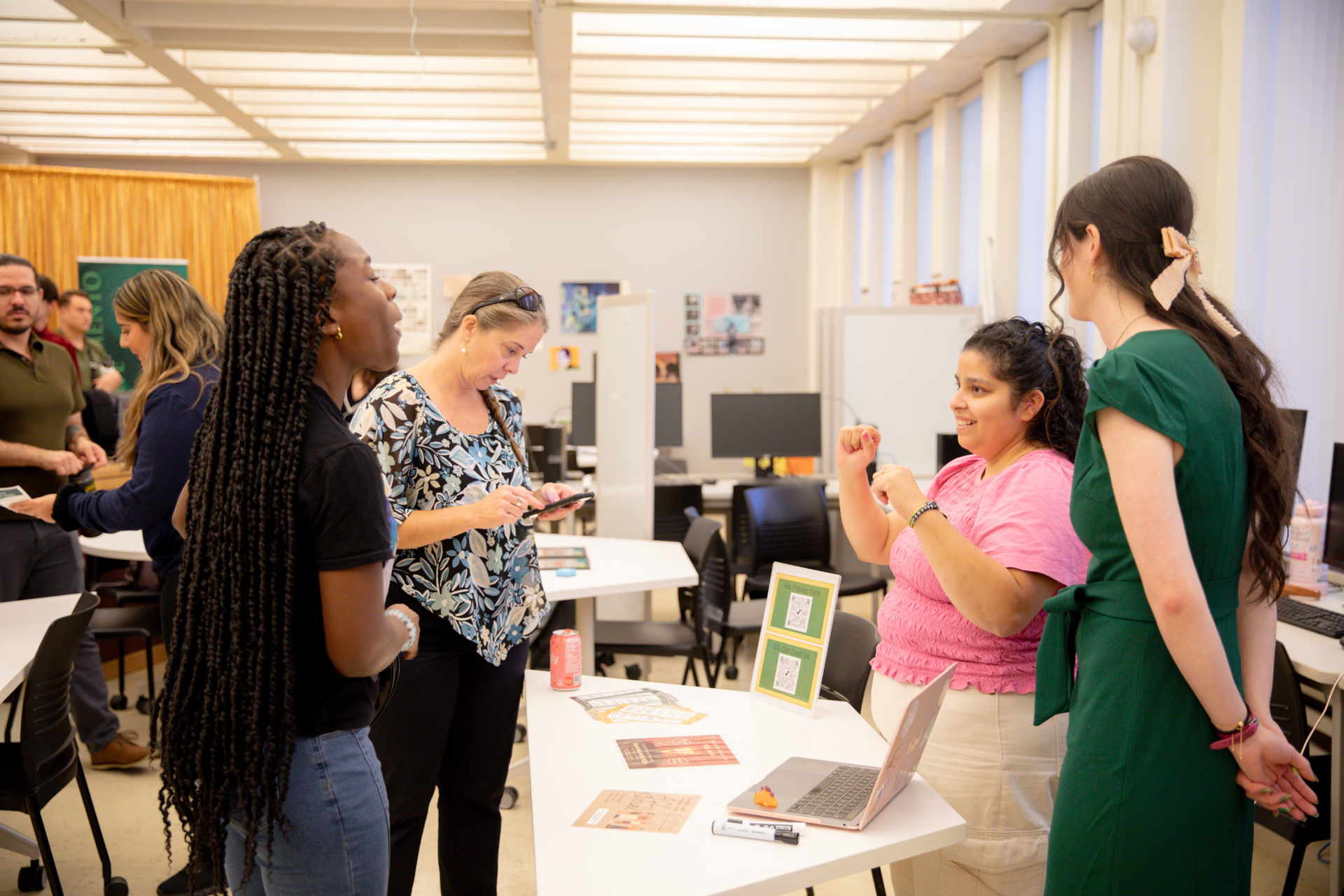
The new ASL Lab offers space for students to hang out, network and build community. Its resources and services include tutoring in partnership with the University’s Peer and Academic Resource Center, an area for ASL Club meetings and other Deaf-centered events and study space.
The lab, located in Eureka Hall 301, officially celebrated its launch with an Open House on Deaf Awareness on Monday, Sept. 30. More than 100 members of the campus community, as well as a group of community college students, attended and learned about resources available to students and opportunities in the program.
Creating lab space for students to practice their signs and complete homework assignments, such as filming ASL videos, was a long-overdue and collaborative effort, said Associate Professor and Deaf Studies program Coordinator Leah Geer.
“This would mirror the resources that other language programs have in the World Languages program,” Geer said. “One way other ASL programs at other institutions and other language programs at Sac State supplement classroom time is with a language lab. In addition, students have long indicated the need for additional support.”
The lab will also support students entering two recently launched master’s of arts in teaching credential programs in Deaf and Hard of Hearing Education and single-subject ASL World Languages.
“It’s a space for building community where everyone has access to language,” Geer said. “In the halls of Eureka, walking around campus, Deaf students, faculty and staff are faced with barriers to communication, but these barriers are brought down in the lab.”
Nate Dutra, an assistant professor in Deaf Studies and ASL, was one of several faculty members who worked to advocate and create a plan to make the lab a reality. An external review of the program several years back revealed that students need more “time on task” when learning ASL. In other words, Dutra said, it’s vital for students to have a dedicated space to practice.
“Learning any language is hard, but learning ASL can be particularly challenging,” Dutra said. “The more we can do to increase the amount of time our ASL and Deaf Studies students are spending using their new language, the better off they’ll be.”
The lab is located within the College of Education’s computer lab in space that underwent renovations over the summer, including new paint and the addition of new furniture to make it more ASL-centered.
“Computer labs are not used as much as they were in the past, so this is a great reuse of the space,” said Méla T. Bennett, ASL Lab coordinator and adjunct professor. “We've always had the need to have Deaf space, a place where students can come and socialize and get support in and out of the classroom. And it's amazing that we finally have a space like that here on campus.”
Ally Baker, an ASL Lab student assistant, said feedback from the students who have already been utilizing the lab has been positive.
“I just think it's great that Deaf people and the Deaf Studies (program) finally have a space that they can call their own,” Baker said. “Deaf people deserve to have that space. It's also great for hearing students to learn about Deaf culture and go into a Deaf space every day.”
During the Open House, which the Deaf Studies program hopes to make an annual event, visitors met with representatives from the undergraduate Deaf Studies program, credential programs in Deaf Education and ASL Club. Activities included mini-workshops and information sessions and a photo booth with silly hats and props.
“It’s ultimately the students who have shaped the space into what it is today. Their enthusiasm, sense of community and commitment to making the lab their own have been the key drivers behind its ongoing success.” -- Nate Dutra, assistant professor in Deaf Studies and ASL
Those who attended the event echoed the importance of having a dedicated on-campus space for both Deaf Studies students and as Deaf individuals in general.
“I just think that submersion into the language and the culture is so very important,” said Andrea Adams, a Deaf Studies alum who is now a graduate student in Educational Leadership and staff member in Family and Consumer Sciences. “The fact that they're offering a space where students can get that interaction, not only with their peers, but also with their Deaf faculty (is really important) because that's really how you master the language.”
Merrissa Brambila, president of the ASL Club and double major in Deaf Studies and Music, said having a space where Deaf people can feel welcome and comfortable is vital.
“It's great to be able to find a place where I, as a Deaf person, don't feel lost,” Brambila said. “I like that I can come here and I know I'll connect with people no matter what level of sign language skill they have.”
First-year Deaf Studies major Danica Spears, who is studying ASL because her mother is Deaf, said the lab has been a great resource.
“Every single day I've had a class in this building, I've been in the ASL Lab,” Spears said.
Dutra, the Deaf Studies and ASL professor, said the students who have already utilized the ASL Lab have helped it evolve far beyond what the faculty and administrators had imagined.
“It’s ultimately the students who have shaped the space into what it is today,” he said. “Their enthusiasm, sense of community and commitment to making the lab their own have been the key drivers behind its ongoing success.”
He added that increasing ASL fluency is a benefit to everyone in the Deaf community.
“When our students do well, the Sacramento Deaf community is better off,” he said. “We are training students who will go on to be interpreters, educators of the Deaf and ASL teachers.”
Media Resources
Faculty/Staff Resources
Looking for a Faculty Expert?
Contact University Communications
(916) 217-8366
communications@csus.edu
